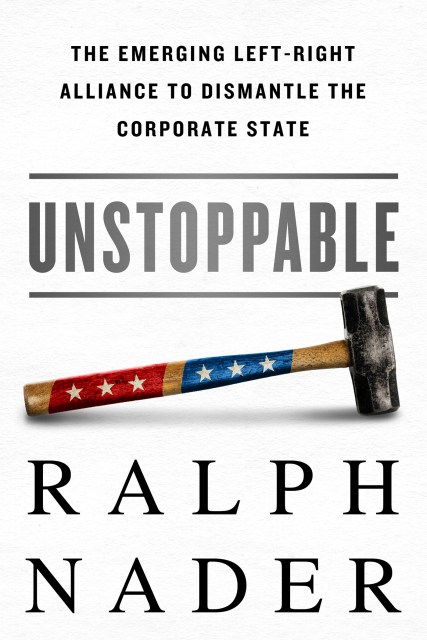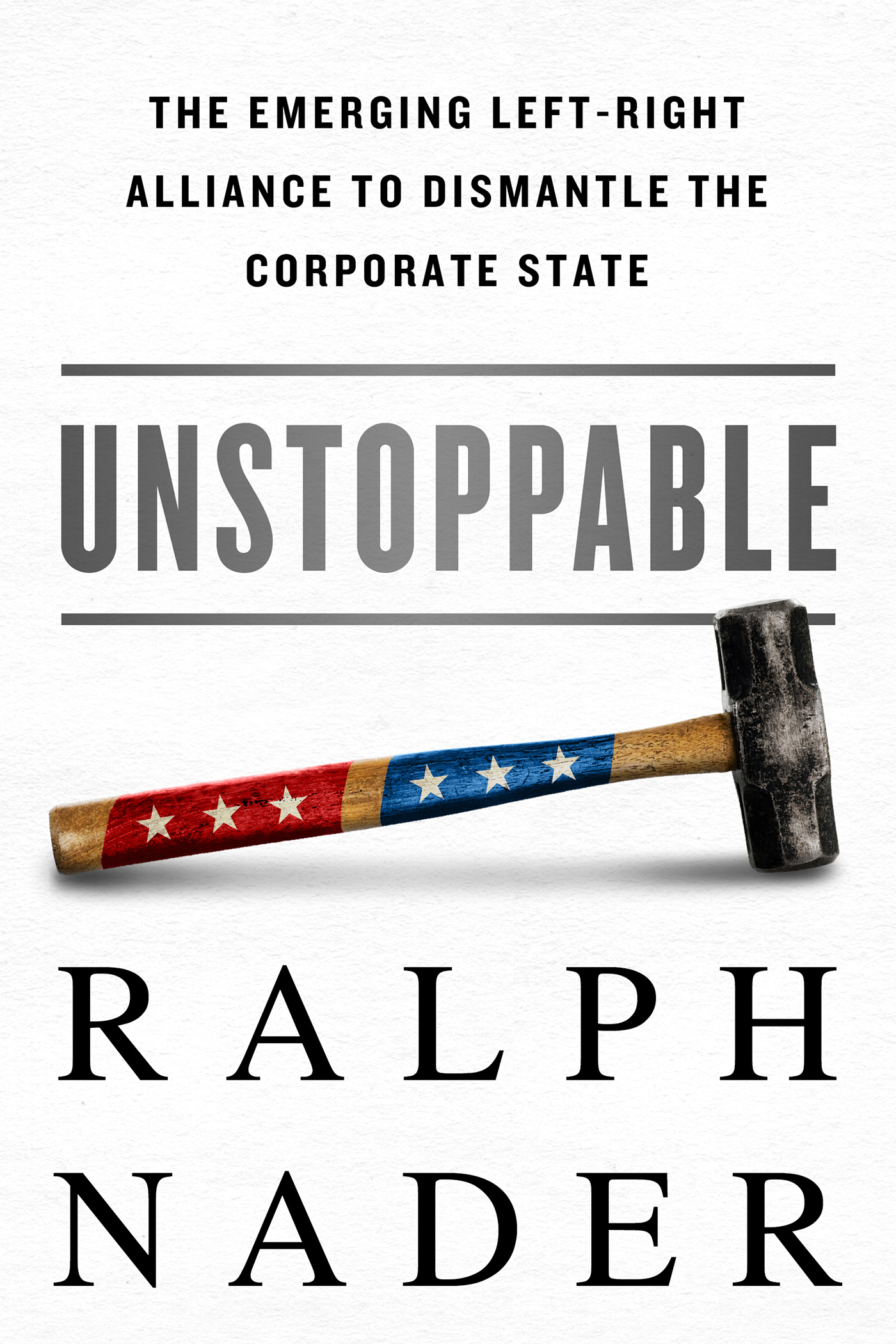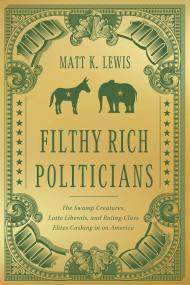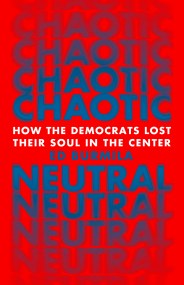Promotion
Use code MOM24 for 20% off site wide + free shipping over $45
Unstoppable
The Emerging Left-Right Alliance to Dismantle the Corporate State
Contributors
By Ralph Nader
Formats and Prices
Price
$9.99Price
$12.99 CADFormat
Format:
- ebook $9.99 $12.99 CAD
- Trade Paperback $14.99 $18.99 CAD
This item is a preorder. Your payment method will be charged immediately, and the product is expected to ship on or around April 15, 2014. This date is subject to change due to shipping delays beyond our control.
Also available from:
Large segments from the progressive, conservative, and libertarian political camps find themselves aligned in opposition to the destruction of civil liberties, the economically draining corporate welfare state, the relentless perpetuation of America’s wars, sovereignty-shredding trade agreements, and the unpunished crimes of Wall Street against Main Street. Nader shows how Left-Right coalitions can prevail over the corporate state and crony capitalism.
He draws on his extensive experience working with grassroots organizations in Washington and reveals the many surprising victories by united progressive and conservative forces. As a participator in, and keen observer of, these budding alliances, he breaks new ground in showing how such coalitions can overcome specific obstacles that divide them, and how they can expand their power on Capitol Hill, in the courts, and in the decisive arena of public opinion.
Americans can reclaim their right to consume safe foods and drugs, live in healthy environments, receive fair rewards for their work, resist empire, regain control of taxpayer assets, strengthen investor rights, and make bureaucrats more efficient and accountable. Nader argues it is in the interest of citizens of different political labels to join in the struggle against the corporate state that will, if left unchecked, ruin the Republic, override our constitution, and shred the basic rights of the American people.
Genre:
-
“Ralph Nader's timely book once again makes him prescient in his insights about American politics. His against-the-grain prediction of a Left-Right alliance is not just a hope, but it is grounded in emerging evidence.” —Cornel West
“Nader at his best—original, indignant, idealistic, and on the lookout for new political alliances and possibilities. A tonic for the cynicism that's poisoning the groundwater of our democracy.” —Robert B. Reich, Chancellor's Professor of Public Policy, University of California at Berkeley
“No American in recent decades has done more than Ralph Nader to construct a workable alliance between the principled Right and the sincere Left to salvage our country and our national prosperity, and Unstoppable outlines his vital mission.” —Ron Unz, former publisher of The American Conservative
“Unstoppable is even-handed, erudite, practical and necessary. Nader harnesses his lifelong crusade for the public interest over the corporatist agenda into a treatise that is optimistic and patriotic. He demonstrably shows that effective Left-Right alliances aren't pipe dreams, but historic realities in need of strategic cultivation, for the sake of our future.” —Nomi Prins, author of All the Presidents' Bankers -
"In 'Unstoppable,' Ralph Nader argues that there are in fact surprising areas of convergence between the left and the right... These are profound observations... Mr. Nader rails so effectively in 'Unstoppable.'" —David Asman, Wall Street Journal
“Activist Nader sketches out places of 'convergence' where liberals and conservatives can start working together for the public good.…[he] lists reforms with which many lawmakers would agree, including breaking up too-big-to-fail banks, protecting children from commercialism and ending corporate personhood.” —Kirkus Reviews
“One of Ralph Nader's finest efforts. A bold and lucid handbook for the future.” —Patti Smith
“Conservatives and liberals both look askance at the Leviathan state and realize that promises of ‘doing good' often obscure the reality of ‘doing well' at taxpayer expense. Those looking for opportunities for bi-partisan cooperation should look at the nexus of statism and cronyism. Unstoppable shows that opposing such corruption can bring activists of the right and left together to fight side by side.” —Grover Norquist
- On Sale
- Apr 15, 2014
- Page Count
- 240 pages
- Publisher
- Bold Type Books
- ISBN-13
- 9781568584553
Newsletter Signup
By clicking ‘Sign Up,’ I acknowledge that I have read and agree to Hachette Book Group’s Privacy Policy and Terms of Use







